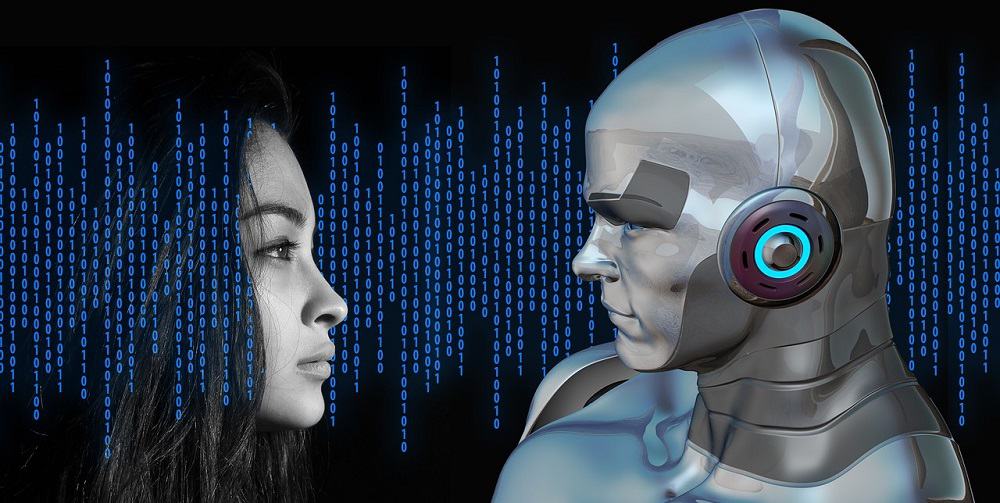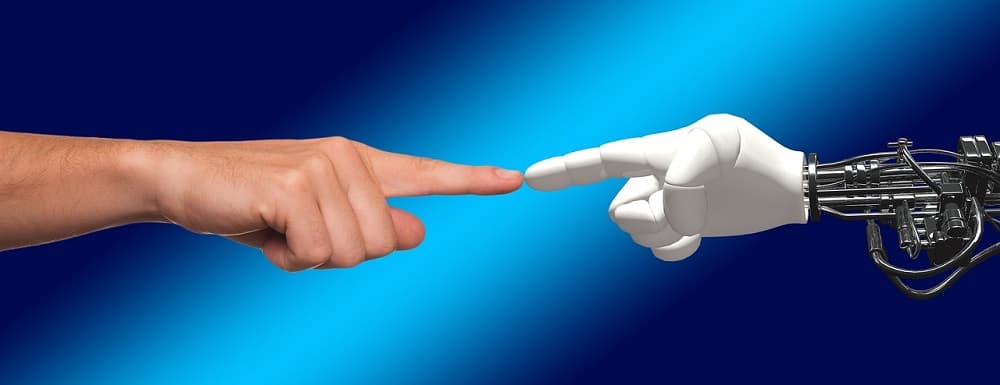In the present scenario, being population on the ever-growing line, demands of various products, services, goods, or brands are continuously increasing. Every industry you can think of is constantly thinking to enhance productivity, and to make this successful, they lack in manpower ability. As human’s nature, one’s mind always moves in the direction of the comfort zone.
It is natural for a human being to think for someone else doing their job effortlessly, but in the end, the credit part of the work should go to humans. And this is where the term Artificial Intelligence comes into role.
Definition of Artificial Intelligence
Artificial intelligence is defined as any task carried out by a machine that normally requires human intelligence. It is referred to as artificial because here, the work is carried out by machines. Basically, machines need to understand why part behind the human brain and then perform the given task.
Earlier, this seems to be real only in the magical world, but now, it is possible due to development in science and technology. This goal is attainable by using simple to complex algorithms that one needs to be applied in the machine to mimics exactly like humans. The four basic principles, according to which a machine needs to work, is as follows:
- Acquiring knowledge.
- Developing human insights.
- Thinking rationally and logically.
- Knowing the why part.

Types of Artificial Intelligence
Artificial Intelligence can be categorized into mostly two ways. Weak artificial intelligence, which is also known as narrow artificial intelligence, is based on simple designed and trained tasks. Second strong artificial intelligence which is also known as artificial general intelligence is based on complex task which requires human intelligence to perform. These two ways are further classified into four main types, which is as follows:
- Type 1 – Reactive machines
This is the simplest form of artificial intelligence. It does not store memories and also do not use past experience in order to make present decisions. Hence, this system is referred to as purely reactive because it will only react based on the current situation.
- Type 2 – Limited Memory
These systems mainly work on past experience. They have the ability to store the previous experience and work accordingly in the present situation.
- Type 3 – Theory of Mind
This type of machine is yet to come. This term refers to understanding behavior, intentions, emotions, feelings, and situations in work. Systems working on the theory of mind principle have very crucial designs and performs a complicated task. If these machines need to be brought into the real world, it is essential for them to develop human thought processes.
- Type 4 – Self Awareness
This system is somewhat similar to type three and still requires much more development in science to make this practically possible. As the name suggests, these machines should be self-aware in any condition and respond according to the human’s feeling.

Applications of Artificial Intelligence
- Artificial Intelligence in Health Care
Medical companies are using artificial intelligence for the betterment of human health by enhancing technologies. Several machines that are based on artificial intelligence store patient’s data, files, and diagnose accordingly.
- Artificial Intelligence in Business
Artificial intelligence can be applied in a business where tasks performed by humans are highly repetitive. This task can be easily done by machines without any fatigue. Algorithms based on artificial intelligence are designed in such a way that machines can effectively be engaged with customer’s experiences, queries, or feedback.
- Artificial Intelligence in Education
Using artificial intelligence, the educational sector has witnessed tremendous growth. Now educators no need to teach continuously for countless hours, and even students can study at their own pace. Regardless of the type of career chosen by any student, everything is easily available on the internet.
- Artificial Intelligence in Automobile Industry
Using artificial intelligence, specialized sensors are used in vehicles that respond according to the outside environment and data stored so as to choose definite actions. These machines have the ability to guide the vehicle to petrol pumps whenever low fuel is indicated, can detect tear of any part of the vehicle, can deliver route based on less traffic, and many more.
- Artificial Intelligence in E-commerce
Artificial intelligence-based machines are driving more potential customers by storing their previous data. Through this, producers can understand how exactly their product is working in the market. They can also analyze customer’s recommendations and work accordingly.
Also Read:
- Blockchain Technology – Features & History
- Internet Of Things – Advantages, Disadvantages & Application
Advantages of Artificial Intelligence
- No error-
As these machines work on designed algorithms and previously stored data, they have fewer chances of mistake. Accuracy has been given the topmost priority.
- Break less-
Machines can work for endless hours. They do not need any kind of break to refresh themselves. In contrast to a human being, machines do not get tired by doing repetitive tasks several times.
- Limited risk-
There are many operations that are too risky to handle for humans. This is where artificial intelligence-based machines play a vital role. It can prevent a human being from risky jobs. It can also predict natural calamities so that human being becomes way too alert before it actually occurs.
Disadvantages of Artificial Intelligence
- High investment-
Designs of artificial intelligence-based algorithms require a high amount of capital and time to be invested. Along with production costs, the market price of such machines is also very expensive. Small scale businesses, as well as normal human beings, can hardly afford any of such machines.
- Unemployment-
As artificial intelligence-based machines provide error free work, speed, and accuracy, it is very obvious for all industries to replace humans in this case. Less qualified workers can be easily fired, and their repetitive works can be done by machines. Thus unemployment is a major problem.
- Lacking in creative skills-
These machines are only designed to work based on installed algorithms. However advanced, they cannot develop the human ability of thinking and imagination. They only work on previously stored data and cannot create something of their own.
Conclusion
Artificial intelligence will surely take the world to the next level. It is a wonder to know that a machine will exactly act like the human brain. Machines based on artificial intelligence will be the next future of the world as these machines will prove beneficial in almost every sector.
By.Shubhangini
